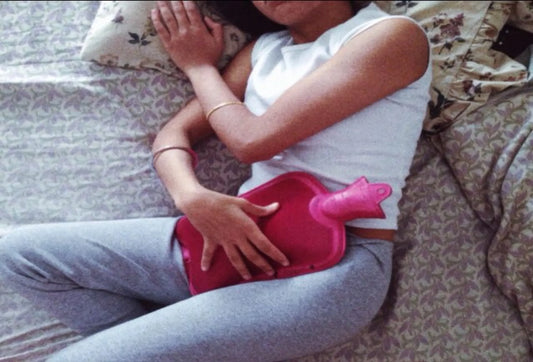
A Complete Guide to Battle your Perinatal Mental Health Issues
Do you often feel exhausted and at low spirits during your pregnancy journey? If you are feeling worried, you are not alone in this. It is in fact quite normal to have changes not only externally but also on your internal state of mind due to huge waves of hormones flowing through your body.
How do you feel?
Mood swings are quite common during pregnancy. But if you feel stressed and overwhelmed a lot, it often points towards an underlying issue and it’s time to assess your mental health. Anxiety and depression are occasional visitors along with some of these other mental health issues,
- post-traumatic stress disorder (PTSD)
- obsessive-compulsive disorder (OCD)
- bipolar disorder (periods of hyper activeness and low energy depression)
- eating disorders (like bulimia or anorexia nervosa)
- panic attacks (sudden physical reactions like shivering along with a sense of intense fear).
What is postpartum depression?
The birth of a new born may trigger powerful feeling ranging from intense happiness to anxiety and fear. These may unconsciously lead to depression. Sometimes it is also called as the peripartum depression as it may start during the period of child bearing and continue after childbirth. You may also experience Baby blues, which is nothing but the feeling of sadness in the first few days immediately after childbirth. In this period, you have to understand that, you are not to blame for how you feel. Statistics shows that 4 out of 5 moms experience baby blues.
Postpartum depression is not be seen as a flaw or a weakness. Timely treatment might help not only you but also improve your relationship with your baby.
Do you feel you are experiencing it? Answer these questions to find out.
- Do you often fall asleep without meaning to?
- Do you feel lethargic for consecutive days together?
- Do you feel anxious and panic even if little things go wrong?
- Do you feel exhausted most of the time?
- Do you fall sick often?
- Do you feel difficult to concentrate and focus at the task at hand?
- Do you often find yourself crying?
- Do you have regular loss of appetite?
- Do you encounter intense irritability or anger?
- Do you find yourself withdrawing from your baby?
If your answer is yes to most of these questions, it is time to take your mental health seriously. Also keep in mind that showing these symptoms isn’t always a 100% assessment result. These symptoms may also depend upon each person’s perspective and may point towards other underlying health issues at times. Talk to a mental health professional for more accurate results.
Few steps for a better mind
1. Start moving slow and steady
A healthier body results in a healthier mind. Exercise results in the release of feel-good hormones and promotes your self esteem and helps with encountering social withdrawal. Yoga helps in increasing concentration and reduces anxiety.
2. Eat healthy
Take your vitamins and minerals on time and in proper quantities. Having a balanced nutritious meal is shown to reduce mood swings and helps you focus better. So don’t be hangry anymore momma! Try to refined sugar in your meals, as it is known to worsen the signs of mood disorders and depression.
3. Bond with your baby
Some mothers feel a sudden rush of love when they see their baby, while some may not. You don’t have to feel anxious. Try to understand your child’s needs and emotional cues. Try to have as much as skin-to-skin contact with your little one, baby massages can be a good start.
4.Talk about your feelings
Loneliness might be a common denominator among new mothers. This can be a cause for high blood pressure, decreased immunity, sleep issues and is even a risk factor for heart diseases. Have your friends and family close to you. Talk about your issues with other mothers and connect with them.
5.Start journaling
Writing down your feelings might help you with streamline your thoughts and helps you get an understanding on what might be causing you to worry and fear. It helps you track your symptoms and help find patterns and recognize triggers. Start by writing down whatever comes to your mind for 20 minutes of every day.
6. Consider medications and psychotherapy
If you have tried everything and still think there is no improvement, try therapy. It will help you set manageable goals and learn to respond to situations in a positive manner. As daunting as it seems, it is necessary for a healthy relationship with your baby.
To Conclude
Everyone’s body is different and so is every pregnancy journey. If you feel that you are experiencing your emotions differently and find it difficult to manage. Don’t worry mommies, as long as you and your baby are healthy and you can manage your anxiety, eventually everything will be alright.
And feel free to seek help from your partner, friends, family and if necessary, a medical professional whenever you can’t handle it. To complement your healing journey look into our Put-chi pampered products.









